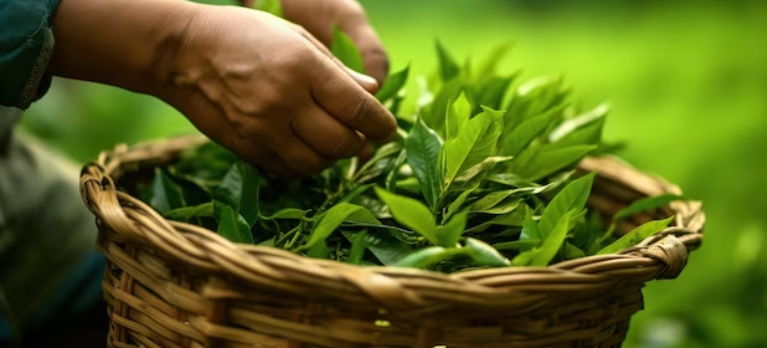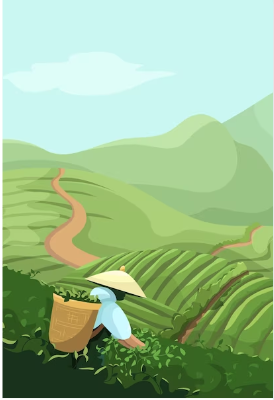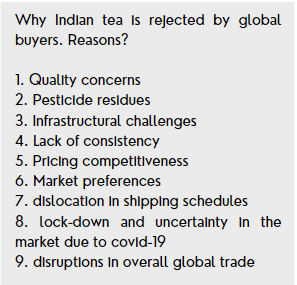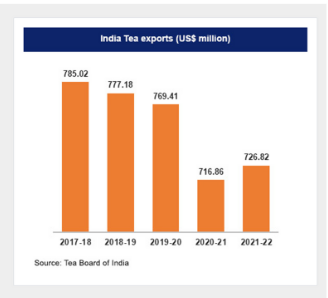
INTRODUCTION
The global tea industry is known for its rich history and immense contribution to the economy. However, like any other agricultural sector, the tea industry faces its own set of challenges. From maintaining the quality and quantity of tea to optimizing production practices, tea growers constantly seek innovative solutions to overcome these obstacles. This is where Farmonaut, steps in to transform the way the tea sector operates.
CHALLENGES IN THE TEA INDUSTRY
- Decline in Availability of Workforce: The tea industry is experiencing a decreasing trend in the availability of workers, particularly in tea gardens. This shortage of workforce has had a direct impact on plucking rounds, leading to a decline in the overall quality of tea production.
- Difficulty in Introduction of Mechanization: Tea cultivation is a labor-intensive industry, with a significant portion (60%-70%) of the workforce engaged in the manual plucking of tea leaves. While mechanization could potentially address the labor shortage, its introduction poses a substantial challenge. Hand plucking, although costly, is known to produce better quality tea compared to machine plucking.
- Lack of Quality Monitoring Mechanism: Ensuring the quality of tea is crucial for its marketability, as it is a high-value crop worldwide. Currently, quality monitoring relies on time-consuming and laborious methods such as inspection by human sensory panels, gas chromatography, and colorimetric analysis.
- Climate Change Impacts: Climate change has had adverse effects on tea production. Tea bushes are experiencing increased stress, resulting in a gradual deterioration of tea quality. Fluctuating weather patterns, rising temperatures, and unpredictable rainfall have disrupted traditional growing conditions and affected the overall health and productivity of tea plantations.
- Lack of Marketing Initiatives: The tea industry has struggled with limited marketing initiatives, hindering its ability to penetrate new markets and secure preferential treatment from importing countries. In the past, the lack of competition, favorable domestic prices, and strong export demand from the Commonwealth of Independent States (CIS) contributed to a complacent approach in developing alternative export markets.
- Switchover of Major Buying Countries: Key tea-buying countries, such as the United Kingdom and Pakistan, have shifted their preferences back to their traditional suppliers, such as Kenya. This change has negatively impacted the Indian tea industry, as it has lost market share and face increased competition.
Addressing these challenges will be crucial for the tea industry’s sustainability and competitiveness. Efforts should focus on attracting and retaining a skilled workforce, exploring innovative approaches to mechanization, investing in advanced quality monitoring technologies, adapting to climate change, revitalizing marketing strategies, and diversifying export markets to ensure a prosperous future for the tea industry.



Revolutionizing the Tea Sector with Farmonaut
Farmonaut offers pioneering solutions that address the aforementioned challenges faced by the tea sector. Exploiting progressive technology, Farmonaut provides tea growers with a range of tools and services to enhance both the quality and quantity of their tea production.
- Remote Sensing and Imagery: Farmonaut’s satellite imagery and drone data solutions provide tea growers with detailed insights into their plantations. Assessing plant health, detecting crop stress, and monitoring growth patterns become effortless with high-resolution images and multispectral data.
- Disease and Pest Detection: Farmonaut’s advanced algorithms and AI-powered systems can detect early signs of diseases and pest infestations in tea crops. By analyzing spectral signatures and patterns, tea growers can take prompt action, applying targeted treatments and minimizing the spread of pests and diseases.
- Climate Monitoring and Forecasting: Farmonaut equips tea growers with real-time climate data and forecasts. This helps tea farmers adapt to changing weather conditions, mitigating risks and optimizing their cultivation practices accordingly.
- Precise Irrigation and Fertilization: Using Farmonaut’s data analytics and insights, tea farmers can accurately determine irrigation and fertilization requirements. This ensures plants receive optimal water and nutrient levels, maximizing yield and quality.
- Crop Management and Automation: Farmonaut’s smart tools enable tea growers to streamline their operations and improve efficiency. From automated irrigation systems to smart pest management solutions, these tools reduce manual labor and enhance productivity.

Conclusion: The Future of Tea Farming, Embracing Farmonaut
As the tea industry continues to evolve, embracing technology-driven solutions becomes imperative. Farmonaut’s comprehensive suite of farming solutions empowers tea growers to tackle the challenges they face head-on. By utilizing remote sensing, data analytics, and AI-driven insights, tea farmers can make informed decisions, optimize production practices, and enhance the quality and quantity of their tea crops. Join the tea revolution today with Farmonaut and discover new heights in the tea sector.

